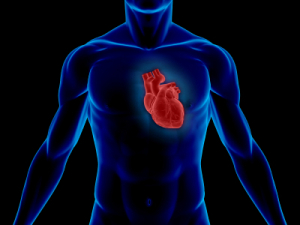
Heart CT angiography
has a 90 percent success
rate in diagnosing heart
disease.
The radiation dose for CT angiography was cut on average by more than half for almost 5,000 patients with no effect on image quality, as a result of a Blue Cross Blue Shield of Michigan-funded project, Beaumont Hospitals said Tuesday.
Details of the project are published in the June 10 issue of JAMA.
The project involved 15 hospitals working together in the first multicenter trial of its kind and included cardiologists and radiologists working side by side.



Ad Statistics
Times Displayed: 109945
Times Visited: 6642 MIT labs, experts in Multi-Vendor component level repair of: MRI Coils, RF amplifiers, Gradient Amplifiers Contrast Media Injectors. System repairs, sub-assembly repairs, component level repairs, refurbish/calibrate. info@mitlabsusa.com/+1 (305) 470-8013
Heart CT angiography, or coronary computed tomography angiography, has a 90 percent success rate in diagnosing heart disease and is especially useful in identifying whether low-risk patients with symptoms have the disease, Beaumont says, noting that the scan's high dose of ionizing radiation is a barrier to its widespread use.
Three Years' Background Radiation
The project participants were able to reduce the radiation dose by an average of 53.3 percent, to about the equivalent of three years' background radiation. This refers to radiation one would get from such sources as sunlight and radioactivity from the earth.
Physicians were able to slash radiation doses by using seven risk-reduction protocols. These included limiting the area scanned and adjusting the power of the scanner depending on the patient's weight.
"The public should be reassured that Blue Cross and the participating hospitals are monitoring radiation doses and looking for ways to reduce them," says cardiologist Gilbert L. Raff, M.D., medical director of the Ministrelli Center for Advanced Cardiovascular Imaging at Beaumont Hospitals (Royal Oak, Mich.), who leads the project. "By doing this in a voluntary and collaborative way, we've been successful in improving health care overall, especially for those with medical conditions requiring frequent CT imaging."
Data for the radiation-reduction project were collected on 4,995 patients at hospitals in the Advanced Cardiovascular Imaging Consortium. The consortium was organized in 2006 with ongoing financial support from Blue Cross Blue Shield of Michigan and Blue Care Network to provide administrative, logistical, statistical and analytical support for the quality improvement program.
"The coronary CT angiography initiative is one of our organization's Value Partnerships--a collection of collaborative initiatives among Blue Cross Blue Shield of Michigan and hospitals and physicians throughout the state," says David A. Share, M.D., M.P.H., senior associate medical director, Blue Cross Blue Shield of Michigan. "Each initiative brings health professionals together to carefully examine health care practice, generate new knowledge about which practices yield the best outcomes, and systematically apply that knowledge so that quality of care improves, health care costs are lower and patients receive the best care possible."

